We live in the age of “Peak TV” — shows of cinematic quality that consistently elevate the medium while expanding what’s possible in terms of storytelling. Tucked in among those programs is Justified, which hit screens 10 years ago this month for a six-season run that pulled in eight Emmy nominations and two wins. Despite its acclaim, Justified remains an underrated underdog, a frequently overlooked gem of Peak TV. Here are 10 reasons why you should be watching this 10-year-old show.
1. Elmore Leonard
Justified is based on the work of beloved crime and Western writer Elmore Leonard. Already a legendary presence by the 1990s for his gritty tales of crime and hardened (and frequently, not that bright) criminals, he experienced a renaissance of sorts as a number of his books were adapted into high-profile film successes, including Out of Sight, Get Shorty, and Jackie Brown (based on Rum Punch). Among the TV films based on his work is 1997’s Pronto, which is Leonard’s first story featuring Deputy U.S. Marshal Raylan Givens. Givens also appears in Riding the Rap and the short story “Fire in the Hole,” a tale that would provide the basis for Justified’s pilot episode.
2. Graham Yost
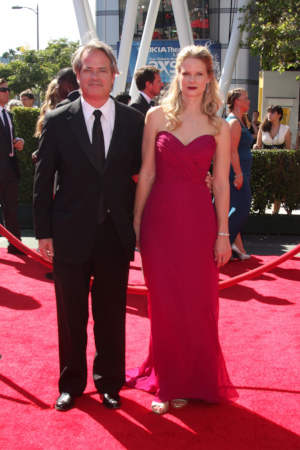
Screenwriter Yost started out in television before making the leap to film as the original writer of Speed. He spent much of the ’90s on huge action vehicles like Broken Arrow and Hard Rain. He later worked with Tom Hanks on the mini-series From the Earth to the Moon and The Pacific and created the acclaimed, but short-lived, TV series Boomtown. Yost developed Justified for FX; originally titled Lawman, the show got its initial 13-episode order in the summer of 2009. The title changed to “Justified” in part because the inciting action of the series is a controversial, but legally justified, shooting that occurs when Givens faces down a hitman in Miami.
3. Timothy Olyphant
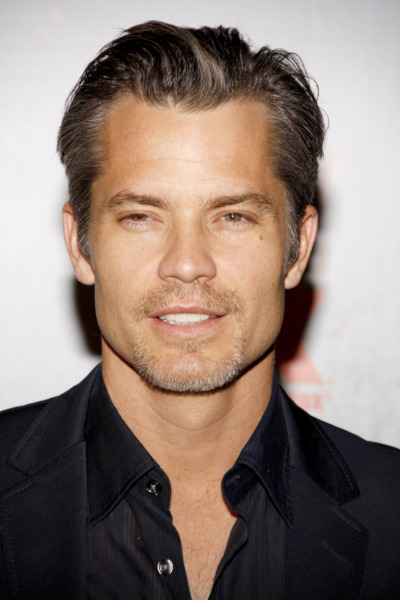
When you star in one classic Western TV series as a lawman in a hat, the project needs to be something special to lure you back. Timothy Olyphant had already made a name playing sketchy characters in film before landing in the center of a world-class ensemble on HBO’s Deadwood. As such, the role of a quick-witted, quick-drawing lawman fueled by dueling cores of anger and decency fit Olyphant like his cowboy hat; The New Yorker’s Emily Nussbaum called him “perfectly cast.”
4. Walton Goggins
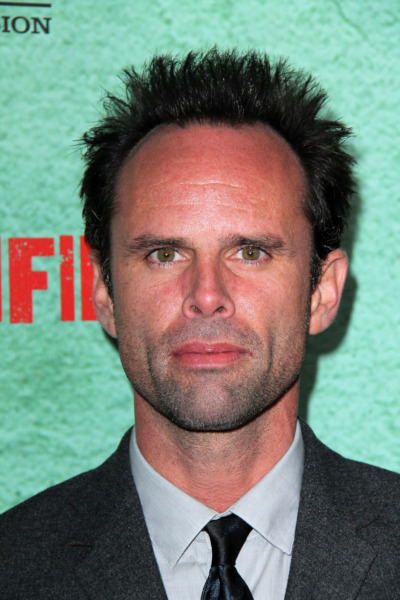
A perfectly cast hero needs a perfectly cast antagonist, and wow, did Justified get that. Rising from a “who was that guy?” character actor to being one of the best things about award-magnet shows like The Shield, Sons of Anarchy, Vice Principals, and The Righteous Gemstones while stealing scenes in films as diverse as Django Unchained and Ant-Man and the Wasp, Walton Goggins commands attention every time he’s on screen. His Boyd Crowder is by turns charming and deceptive, hilarious and lethal. He’s the kind of villain with so much life and complexity that you want him to stay alive. Every scene with Olyphant and Goggins is electric, whether its trading funny dialogue, fighting each other, or occasionally teaming up to stay alive. Tim Goodman wrote for The Hollywood Reporter that “Raylan and Boyd will certainly take their place with the best of any of the characters from those other shows” (and by “those other shows,” he enumerated The Sopranos, The Wire, Mad Men, and Breaking Bad).
5. The Writers and Directors
Yost assembled an outstanding group in the writer’s room, including talents like Nichelle D. Tramble (The Good Wife), Ingrid Escajeda (Empire, Better Off Ted), VJ Boyd (S.W.A.T., Lincoln Rhyme: The Hunt for the Bone Collector), and many more. Yost gave all the writers rubber bracelets stamped with “WWED?” which stood for “What Would Elmore Do?” It was a reminder that they were custodians of characters created by one man, and that they should be mindful of his tone, rhythm, and intent when approaching the work. In the director chairs, Yost pulled in a stalwart crew of seasoned veterans. Feature film and TV director Jon Avnet did 10 episodes; in-demand actor-director Adam Arkin also did 10, and appeared as late-series nemesis Theo Tonin.
6. The Regular Supporting Cast
The regular supporting cast came loaded with scene-stealers, predominant among them Joelle Carter, whose Ava begins as a love interest for Raylan before morphing into a combustible romantic and criminal partner for Boyd. Natalie Zea, as Raylan’s ex-wife Winona, embodies a kind of hopeful weariness. The other Marshals (Nick Searcy as Raylan’s frequently hilarious, always put-upon boss Art; Jacob Pitts as dry-humored veteran Tim; Erica Tazel as the constantly underestimated Rachel) regularly offer delightful moments, as do ongoing underworld figures Wynn Duffy (Jere Burns, with classic reactions for nearly every conversation), Dewey Crowe (one of the most lovably stupid henchman ever, played with excellence by Damon Herriman), and Raylan’s sinister father, Arlo, essayed with smiling menace by Raymond J. Barry.
7. The Guest Stars
Justified earned its two Emmy wins for guest actors. The first was for the magnificent Margo Martindale as second-season weed-dealing matriarch Mags Bennett. The other Emmy went to Jeremy Davies, who played her dangerously addled son, Dickie, in 20 episodes. The show’s overall quality and arc structure allowed actors of high stature to come in for limited runs, and they made the most of it. Highlights included Mykelti Williamson, Neal McDonough, Ron Eldard, Michael Rapaport, Mary Steenburgen, and, in a rare mustache-less role, Sam Elliott as final-season villain Avery Markham.
Of special note is Carla Gugino, who previously had an all-too-brief run as another Elmore Leonard U.S. Marshal in Karen Sisco. Though character rights issues between networks prevented Gugino from guest-starring directly as Sisco, a little creativity from the writer’s room allowed her to guest in the episode “Cut Ties” as “Karen Goodall,” a Marshal acquaintance of Raylan’s from the Miami office who had gotten married, and changed her last name, since the last time they saw one another.
Another stand-out is comedian Patton Oswalt, who plays Constable Bob in six episodes. Well-meaning and bumbling, Bob first appears as a comedic contrast to Raylan. However, his sensitivity and predilection for massive firepower gets him into trouble. Oswalt plays Bob with fantastic ranges of frustration, hero-worship (for Raylan), and sincerity, later revealing a surprising and cheer-worthy amount of toughness.
8. The Setting and Theme
The Harlan, Kentucky setting is a character in itself. Though the production took place in Green Valley, California, the show conveys the deep woods and holler feel of the Bluegrass State. The backdrop of the show is inexorably intertwined with small towns dependent on the coal mining industry for their livelihood, mixing with economic depression that allows meth and weed dealing to prosper. A large part of Raylan’s character arc is the fact that he desperately wanted to escape Kentucky, but his own actions got him reassigned back to the state. The notion of “getting out” is an ongoing driver of a number of characters in the plot; many of the criminal characters articulate that their vocation is fueled by a desire for a better life.
Another ongoing theme is the idea of trying to distinguish one’s self from family history. Raylan and Boyd both had criminal fathers. And though the two worked coal in their younger days, Raylan chose the law and Boyd chose the other side. Their common background keeps them connected, but they define themselves by their choices.
9. The Theme Song
“Long Hard Times to Come” by Gangstagrass and T.O.N.E.Z. (Uploaded to YouTube by Gangstagrass)
“Long Hard Times to Come” is by Gangstagrass, a band that combines hip-hop and bluegrass. The lead rap is by T.O.N.E.Z. The stunningly appropriate combination of regional music and modern vocalizing was nominated for an Emmy in 2010 for Outstanding Original Main Title Theme Music.
10. That Finale
Fair or not, even the greatest long-running shows get judged on the finale more than any other episode. It’s a fact that has bedeviled classics like Lost, Game of Thrones, even The Sopranos. In the case of Justified, the show manages to both deliver on and defy expectations while ending with an absolutely classic dialogue exchange. Though it’s not the exchange in question, one of the last lines from Boyd to Raylan is “Raylan Givens, I know you have never believed a word that has ever come out of my mouth, but I have harbored a secret hope that you nevertheless enjoyed hearing them.” Boyd may have been built to lie, but that line, and Justified itself, is the truth.
Featured image: Shutterstock
Become a Saturday Evening Post member and enjoy unlimited access. Subscribe now
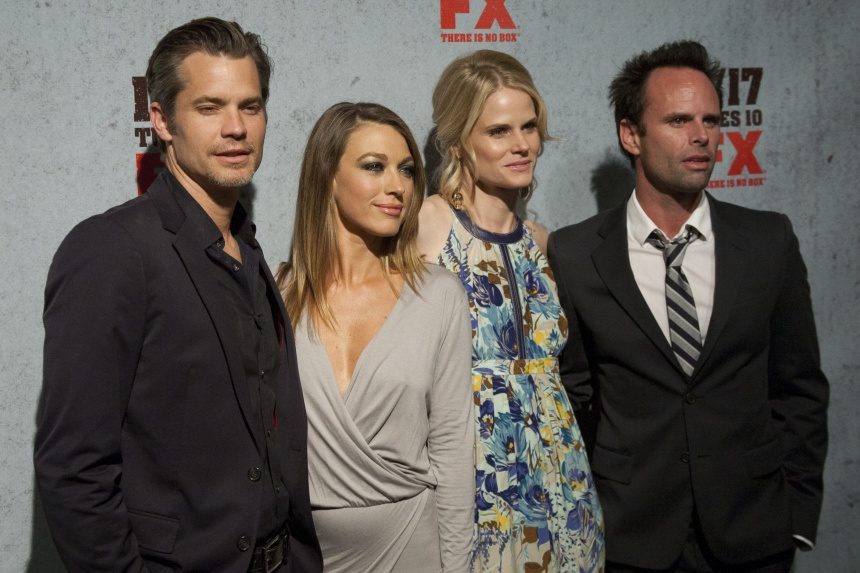


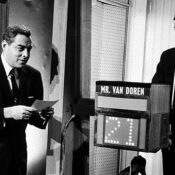
Comments
The last line that Raylan says to Boyd brought tears to my eyes. It was tremendous. Real as I’ve ever heard. Never personally witnessed a better crafted finale.
I hope this list was in no particular order, otherwise you screwed up ROYALLY by not making Walton Goggins #1 on the list! I started watching the show because of Timothy Olyphant, I had no idea who Walton Goggins was at the time, but I stayed for Walton Goggins! Also, I think that you should have said that Boyd Crowder was supposed to die in the first episode after Raylen shot him, but Walton Goggins was so well received that Boyd didn’t die. 🙂
A person’s success does not depend on his wisdom, but perseverance